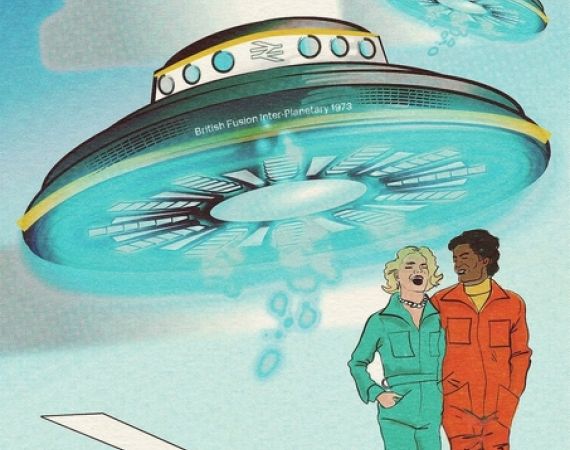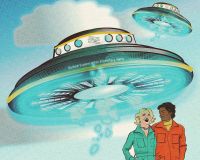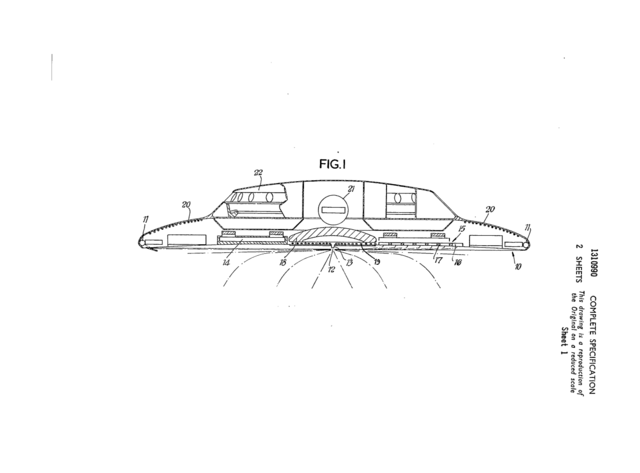Posted on Thu 10 Mar 2022
British Fusion - augmented reality based on a weird discovery
Alistair Gentry writes about his first few weeks as a Watershed Winter Resident

Project

British Fusion
An augmented reality experience by Alistair Gentry, based on the weird discovery that in the early 1970s British Rail filed a patent for a flying saucer.Our collective futures often seem very bleak, whether they’re fictional or all too real. The coronavirus pandemic has developed into an equally horrifying and mind-bindingly tedious dystopia of needless death and illness, profiteering and incompetence which seems to have brought out the worst in many of our fellow humans. It feels as if imagining a more positive future right now is more than a vague or idle hope; it’s a necessity. There were plenty of dystopias and disasters in our literature and entertainment when I was child in the 1970s, from the influence of Rachel Carson’s ecopocalyptic Silent Spring to Soylent Green (set in the far flung year of 2022!) where a food crisis is solved by recycling people into the eponymous foodstuff. But we also saw a lot of optimistic, silver-lamé-clad, robot-filled, ecologically aware, inclusive, sexually adventurous, Afrofuturist, floating in space and above all really, really DISCO futures in that period too. We don’t seem to have those any more.
I’ve just begun a residency at the Pervasive Media Studio, researching an augmented reality experience based on the weird discovery that in the early 1970s Charles Frederick– an employee of the then nationalised British Rail– filed a patent for a flying saucer as a means of public transport. You don’t need to be a long suffering passenger of privatised British public transport to know that we didn’t even get trains that can run on time at a reasonable cost, let alone the publicly owned and operated flying saucers that we all deserve. British Rail didn’t even bother to renew the patent (probably because you have to pay) and it lapsed in 1976. 
But this got me thinking about how the history and culture of our country could have forked at that point if there had been the will and the resources to make gravity-defying flying saucers, along with the clean fusion energy plants
to power them. More or less free and unlimited energy would avert, to pick one huge example, the energy crisis of the 1970s. Without the austerity and hard times of the seventies, with oil and car companies cut off at the knees, we might be living in a much kinder and and more equitable world. This is the world that I’d like people to be able to visit for a while, to feel and experience with all their senses. Follow my regular blogs here to keep up with the project as it develops.